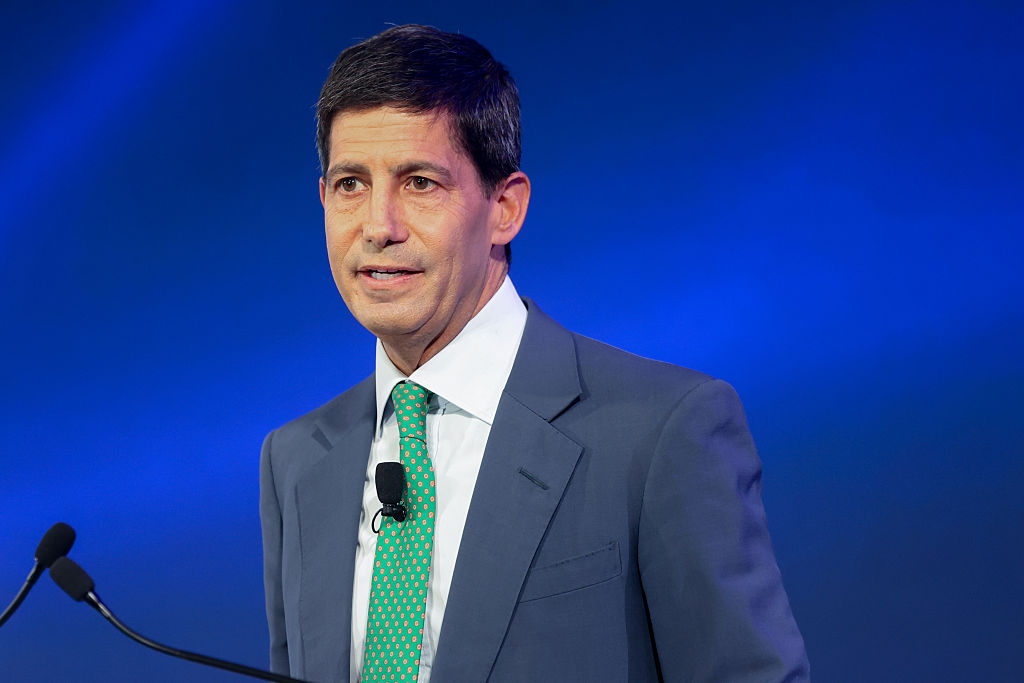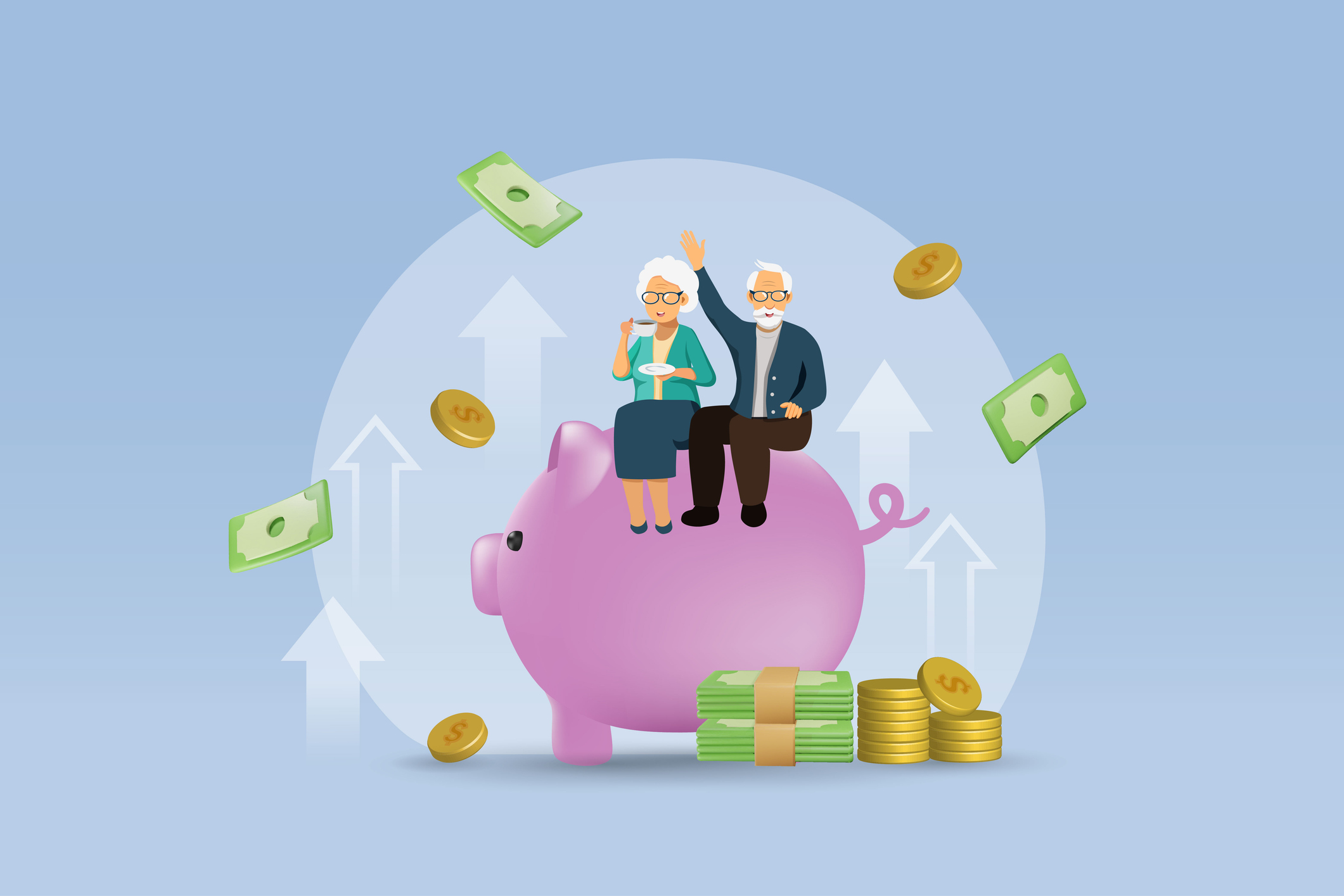Profit and prosper with the best of Kiplinger's advice on investing, taxes, retirement, personal finance and much more. Delivered daily. Enter your email in the box and click Sign Me Up.
You are now subscribed
Your newsletter sign-up was successful
Want to add more newsletters?

Delivered daily
Kiplinger Today
Profit and prosper with the best of Kiplinger's advice on investing, taxes, retirement, personal finance and much more delivered daily. Smart money moves start here.

Sent five days a week
Kiplinger A Step Ahead
Get practical help to make better financial decisions in your everyday life, from spending to savings on top deals.

Delivered daily
Kiplinger Closing Bell
Get today's biggest financial and investing headlines delivered to your inbox every day the U.S. stock market is open.

Sent twice a week
Kiplinger Adviser Intel
Financial pros across the country share best practices and fresh tactics to preserve and grow your wealth.

Delivered weekly
Kiplinger Tax Tips
Trim your federal and state tax bills with practical tax-planning and tax-cutting strategies.

Sent twice a week
Kiplinger Retirement Tips
Your twice-a-week guide to planning and enjoying a financially secure and richly rewarding retirement

Sent bimonthly.
Kiplinger Adviser Angle
Insights for advisers, wealth managers and other financial professionals.

Sent twice a week
Kiplinger Investing Weekly
Your twice-a-week roundup of promising stocks, funds, companies and industries you should consider, ones you should avoid, and why.

Sent weekly for six weeks
Kiplinger Invest for Retirement
Your step-by-step six-part series on how to invest for retirement, from devising a successful strategy to exactly which investments to choose.
March might be almost over, but the madness is still going strong. From the closing moments of March Madness to the opening rounds of the Masters, it’s a prime time for sports fans — and bettors.
Whether it’s backing a college team or picking a favorite for the green jacket, millions of Americans are putting money on the line. According to a study from the Kellogg School of Management at Northwestern University, the average person spends about $1,100 a year betting on sports events.
That might not seem like a lot, but it’s nothing to sneeze at. According to Bankrate’s 2025 Emergency Savings Report, nearly half of Americans said they’d feel very worried if they lost their job tomorrow and had to rely on an emergency fund.
From just $107.88 $24.99 for Kiplinger Personal Finance
Become a smarter, better informed investor. Subscribe from just $107.88 $24.99, plus get up to 4 Special Issues

Sign up for Kiplinger’s Free Newsletters
Profit and prosper with the best of expert advice on investing, taxes, retirement, personal finance and more - straight to your e-mail.
Profit and prosper with the best of expert advice - straight to your e-mail.
Over half aren’t happy with how much they have saved, and one in four who tapped into their savings in the past year used between $1,000 and $2,500 to cover an emergency.
Instead of leaving your money up to chance, you could put it somewhere with a guaranteed return. That’s where certificates of deposit (CDs) come in — a safer way to grow your cash while still making a strategic play.
Should you take a shot on the game or lock in a sure thing?
What happens if you bet $1,100 on the NCAA Men’s Basketball Championship?
With the Florida Gators and Houston Cougars facing off in tonight’s NCAA Men’s Basketball Championship, it might be tempting to throw down a big bet.
If you wager $1,100 on the Gators at -115 odds, you’d stand to earn about $956.52 in profit if they win. If you place the same bet on the Cougars at -105 odds, your potential profit would be slightly higher —around $1,047.62.
Of course, if your pick loses, you lose the entire $1,100.
Unlike a CD, betting on the game doesn’t come with a guaranteed return — but that’s part of the excitement.
For sports fans, placing a bet can add a little extra thrill to the experience, especially during high-stakes moments like the NCAA championship.
But if you’re also thinking about building your savings, a CD might be a smart way to balance out the risk.
What happens if you invest $1,100 in a CD?
Investing $1,100 at one bank might not yield the same return as investing it somewhere else. The higher the APY, the more you’ll earn when your CD term ends. Be sure to compare interest rates, terms and minimum deposit requirements to find the best fit for your savings goals.
For example, putting $1,100 into a 1-year CD with Bask Bank at 4.40% APY guarantees you $48.40 in interest, with your full deposit still intact at the end of the term.
Below are some standout 1-year CDs you can open with $1,000 or less:
Institution | APY | Minimum Deposit Requirement |
4.40% | $1,000 | |
4.36% | $1,000 | |
4.25% | $500 | |
4.25% | $500 | |
4.25% | $1,000 | |
4.21% | $1,000 |
What are CDs?
A CD is a type of savings account that holds your money for a fixed period of time in exchange for a guaranteed interest rate.
Terms can range from three months to five years, depending on where you open your CD account. Once the term ends, you can access your money along with the interest it earned.
You can spend it, reinvest it in another CD or use it however you’d like. To keep their money growing and stagger access to it over time, some people use a strategy called a CD ladder, where they open multiple CDs with different maturity dates.
Unless you withdraw the money early, a CD doesn’t come with any risk to your principal — only the opportunity to earn.
Just keep in mind that the returns are typically more stable and slow-growing compared to other investments.
Why CDs are the smarter bet
Choosing the right CD might not prove you can pick the next NCAA Final Four winner, but it does show you know how to choose a smart way to grow your money.
- Predictability. Since you know how much you’re putting into a CD at the beginning of the term and the APY, you know exactly how much you’ll get back when those terms are up.
- Guaranteed return. CDs guarantee a return and you won’t lose money. You’ll lock in an interest rate and your money will be waiting for you when your term is up.
- Easy management. CDs are quick and easy to set up. Once you make your deposit, you can leave it alone. Set it and forget it until your terms are up.
- Low-risk. CDs are a safe, low-risk investment. You’re bound to earn something, even if the amount is less than other types of investments. But many options that offer a higher return also have a higher risk.
Rather than risking a loss, putting that money into a CD ensures you’ll walk away with more than you started — no matter how much you invest or how long the term.
Whether you’re chasing the win on the court or growing your money on the sidelines, it’s all about playing the long game your way.
related content
Profit and prosper with the best of Kiplinger's advice on investing, taxes, retirement, personal finance and much more. Delivered daily. Enter your email in the box and click Sign Me Up.
Dori is an award-winning journalist with nearly two decades in digital media. Her work has been featured in the New York Times, Wall Street Journal, USA Today, Newsweek, TIME, Yahoo, CNET, and many more.
Dori is the President of Blossomers Media, Inc.
She’s extensively covered college affordability and other personal finance issues, including financial literacy, debt, jobs and careers, investing, fintech, retirement, financial therapy, and similar topics. With a strong journalistic background, she’s also worked in content marketing, SEO, affiliate marketing, content strategy, and other areas.
Dori graduated with a Bachelor’s degree in Multimedia Journalism from Florida Atlantic University. She previously served as the president of the Florida Chapter of the Society of Professional Journalists, where her chapter won the coveted “Chapter of the Year” award for two consecutive years.
-
 Dow Adds 1,206 Points to Top 50,000: Stock Market Today
Dow Adds 1,206 Points to Top 50,000: Stock Market TodayThe S&P 500 and Nasdaq also had strong finishes to a volatile week, with beaten-down tech stocks outperforming.
-
 Ask the Tax Editor: Federal Income Tax Deductions
Ask the Tax Editor: Federal Income Tax DeductionsAsk the Editor In this week's Ask the Editor Q&A, Joy Taylor answers questions on federal income tax deductions
-
 States With No-Fault Car Insurance Laws (and How No-Fault Car Insurance Works)
States With No-Fault Car Insurance Laws (and How No-Fault Car Insurance Works)A breakdown of the confusing rules around no-fault car insurance in every state where it exists.
-
 3 Reasons to Use a 5-Year CD As You Approach Retirement
3 Reasons to Use a 5-Year CD As You Approach RetirementA five-year CD can help you reach other milestones as you approach retirement.
-
 4 Psychological Tricks to Save More in 2026
4 Psychological Tricks to Save More in 2026Psychology and money are linked. Learn how you can use this to help you save more throughout 2026.
-
 Trump Nominates Kevin Warsh to Fed Chair. How Will This Impact Savers?
Trump Nominates Kevin Warsh to Fed Chair. How Will This Impact Savers?Here's a look at how Warsh could influence future Fed policy if he's confirmed.
-
 Why Your Bank Suddenly Lowered Your APY — And What to Do Next
Why Your Bank Suddenly Lowered Your APY — And What to Do NextWhy banks lower APYs, options you can explore when it happens and whether more rate cuts are on the horizon.
-
 Do You Have a CD Maturing Soon? Here's What to Do Next
Do You Have a CD Maturing Soon? Here's What to Do NextThese strategies of what to do when you have a CD maturing soon will have you maximizing returns even with rate cuts.
-
 How to Open and Maintain an Online Savings Account Safely
How to Open and Maintain an Online Savings Account SafelyOnline banks offer generous APYs that most brick-and-mortar banks can't match. If you want to make the switch to online but have been hesitant, I'll show you how to do it safely.
-
 Here's How Much You Can Earn with a $100,000 Jumbo CD
Here's How Much You Can Earn with a $100,000 Jumbo CDYou might be surprised at how fast a jumbo CD helps you reach your goals.
-
 Online Banks Still Lead on Rates, But Is Switching Worth it Now?
Online Banks Still Lead on Rates, But Is Switching Worth it Now?As interest rates trend down, online banks keep an edge on yields, but service, access and flexibility still matter. Here’s how the trade-offs stack up.

